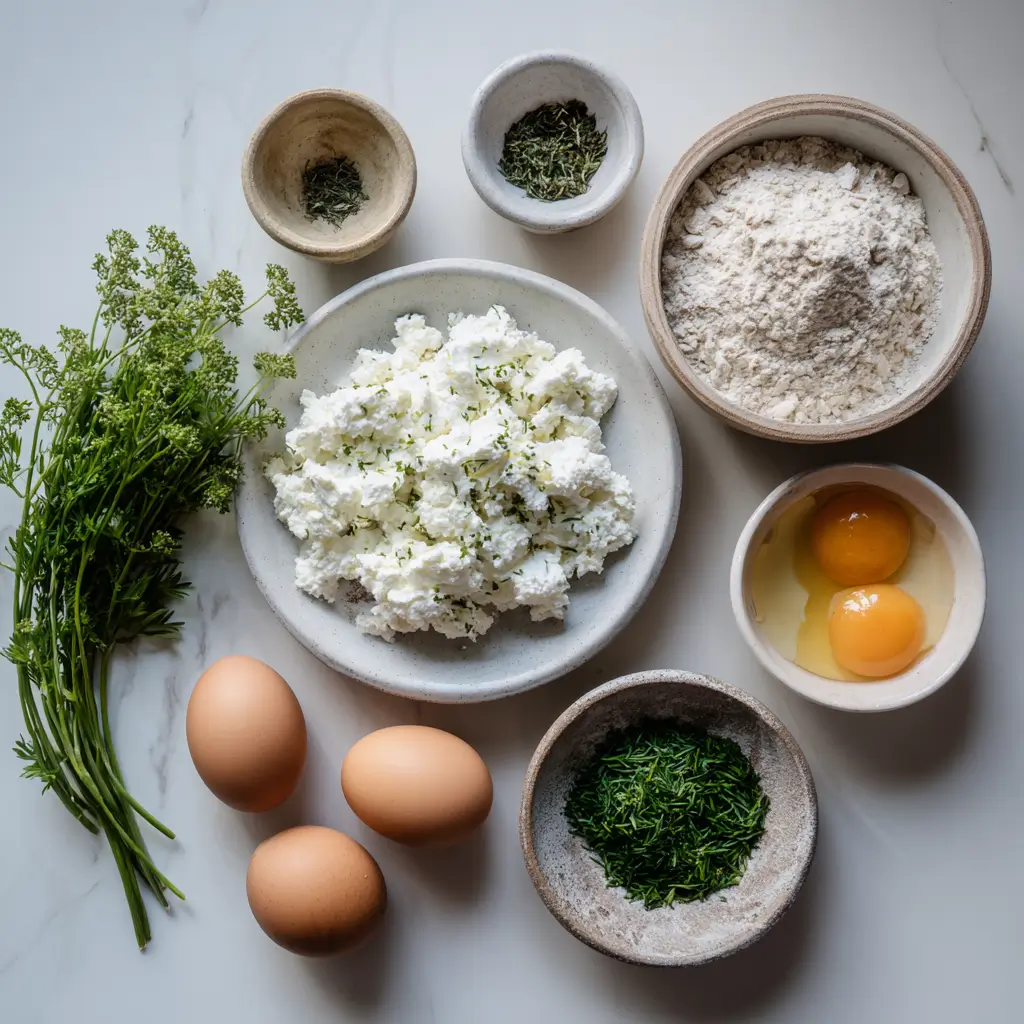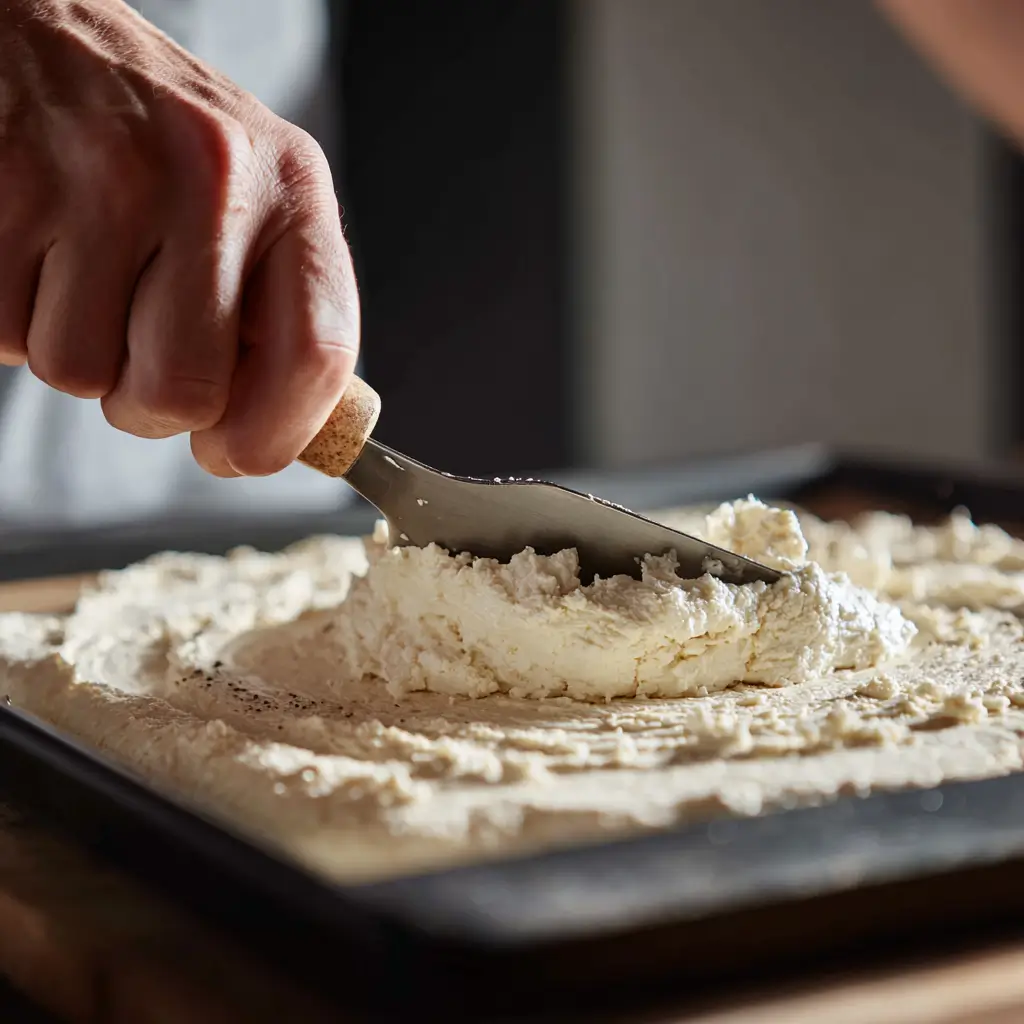If you’ve been searching for a healthy, protein-packed alternative to regular bread, then this cottage cheese flatbread recipe might be exactly what you need. Packed with nutrients, quick to prepare, and versatile enough to use as wraps, pizza bases, or even sandwich bread, this recipe is winning hearts across kitchens. While traditional flatbreads often rely heavily on flour, this version blends cottage cheese with simple ingredients to create a softer, more nourishing option. Whether you’re into fitness, following a low-carb lifestyle, or simply want to add more variety to your meals, cottage cheese flatbread is a smart choice. Looking for inspiration? Try cottage cheese bagels as another high-protein twist you’ll love.

Table of Contents
Table of Contents
Why Choose Cottage Cheese Flatbread?
The Rise of Protein-Rich Breads
In recent years, high-protein bread alternatives have exploded in popularity. People are more conscious about carbs, and protein has taken center stage for muscle building, weight management, and sustained energy. Cottage cheese flatbread fits right into this trend by offering both flavor and nutrition.
Cottage Cheese vs Traditional Flatbread: Nutrition Comparison
Traditional flatbreads rely on wheat flour, which is filling but carb-heavy. In contrast, cottage cheese flatbread delivers a lower-carb, higher-protein option. For example, a single serving of this recipe can pack up to 10–12 grams of protein while keeping carbs under 6 grams, depending on add-ins. This makes it a fantastic choice for anyone watching macros. For more detailed numbers, don’t miss our breakdown on cottage cheese nutrition.
Benefits of Cottage Cheese Flatbread for Weight Loss and Fitness
Beyond nutrition, there’s convenience. Because this bread uses cottage cheese, it’s rich in calcium and casein protein, both of which support satiety and muscle recovery. If you’re on a weight-loss journey or looking to fuel workouts, this recipe keeps you fuller longer without the crash that comes from carb-heavy breads.
Key Ingredients for Cottage Cheese Flatbread Recipe

The Role of Cottage Cheese in Flatbread Texture
Cottage cheese does more than add protein; it creates moisture, tenderness, and a slightly tangy flavor. Blended smooth, it becomes the base that holds everything together. Low-fat cottage cheese works well for a lighter bread, while full-fat versions make the flatbread richer and more indulgent.
Eggs, Flour Alternatives, and Binders
Eggs are essential to bind the mixture. For flour, you can choose oat flour, almond flour, or even coconut flour depending on dietary needs. Each flour choice changes the texture slightly—almond flour gives a nutty finish, while oat flour keeps it light and fluffy.
Optional Add-Ins: Herbs, Garlic, Seeds
If you love experimenting, adding dried herbs, garlic powder, sesame seeds, or even chia seeds can elevate your flatbread. Discover great ideas like cottage cheese dip to pair with your herb-seasoned flatbread.
Step-by-Step Cottage Cheese Flatbread Recipe
Preparation: Blending Ingredients
Start by blending cottage cheese until smooth. Then add eggs, chosen flour, and seasonings. The batter should be thick but pourable, resembling pancake batter.
Cooking Methods: Oven vs Stovetop vs Air Fryer
- Oven: Spread the batter onto a lined tray and bake until golden.
- Stovetop: Pour onto a heated skillet like a pancake and cook until firm.
- Air Fryer: Spread batter in parchment-lined trays for quick, crisp results.
Tips for Getting Perfect Consistency
If your flatbread is too wet, add a tablespoon of oat flour. If it’s too dry, a splash of milk or water balances the texture. For an extra fluffy outcome, let the batter rest for five minutes before cooking.

Variations of Cottage Cheese Flatbread
3-Ingredient Cottage Cheese Flatbread
For busy days, you only need cottage cheese, eggs, and oat flour. Blend, cook, and enjoy in under 20 minutes. This is the easiest and most beginner-friendly version.
Low-Carb and Gluten-Free Flatbread Versions
Swap oat flour with almond or coconut flour for a low-carb, gluten-free alternative. This is especially helpful for keto enthusiasts. Learn more about cottage cheese keto diet to see how this recipe can fit seamlessly.
Cottage Cheese Bagels: Turning Flatbread into Rounds
Here’s where creativity kicks in: simply shape your batter into circles with a hole in the middle and bake. You’ve just turned flatbread into high-protein bagels. Don’t miss our guide on low carb high protein bagels for inspiration.
Common Problems and Troubleshooting
Why Does Cottage Cheese Flatbread Fall Apart?
One of the most common issues home cooks face is flatbread that crumbles. This usually happens when there isn’t enough binder in the batter. Eggs are crucial here, so if your bread falls apart, add an extra egg or reduce the liquid slightly.
How to Fix Soggy or Sticky Dough
If the batter is too wet, your flatbread will turn soggy. The fix is simple—add more oat flour or almond flour until the batter thickens. Another tip is to always drain cottage cheese before blending, especially if it’s a high-moisture brand.
How to Prevent Flatbread from Burning or Drying Out
Flatbread burns quickly if the heat is too high. Cook at medium heat on the stovetop or 350°F in the oven for the best results. For extra moisture, brush lightly with olive oil before baking. For more helpful cooking ideas, check out mistakes to avoid in baking.
Nutrition and Health Benefits of Cottage Cheese Flatbread
Macronutrients: Protein, Carbs, and Fat Breakdown
A single serving of cottage cheese flatbread typically provides:
| Nutrient | Amount (per serving) | Benefit |
|---|---|---|
| Protein | 10–12g | Builds and repairs muscles |
| Carbs | 4–6g | Energy source with fewer spikes |
| Fat | 3–5g | Supports satiety and hormone health |
| Calories | ~100–120 | Light yet filling |
Is Cottage Cheese Flatbread Good for You?
Yes—this flatbread is not just tasty but also nutrient-dense. It supports muscle recovery, keeps you fuller longer, and is lower in carbs than most breads. Many people even use it as part of a weight-loss plan.
Comparison with Regular Bread and Wraps
Unlike standard bread that’s heavy on carbs, cottage cheese flatbread delivers higher protein at a fraction of the calories. That makes it a healthier choice, especially for those on a low-carb or balanced diet.
Serving Ideas and Meal Pairings
Using Flatbread for Wraps and Sandwiches
One of the easiest ways to enjoy cottage cheese flatbread is as a wrap. Load it with grilled chicken, veggies, or hummus for a balanced meal.
Flatbread as a Base for Pizza
This flatbread doubles as a fantastic pizza crust. Just spread tomato sauce, sprinkle cheese, and bake until bubbly. You’ve got a protein-packed pizza ready in minutes.
Pairing with Dips, Spreads, and Soups
Pair flatbread with creamy dips, hummus, or even cottage cheese spreads for a wholesome snack. It also works beautifully alongside soups or stews. Discover great ideas like creamy spinach dip that pair perfectly with this bread.
Cottage Cheese Flatbread vs Cottage Cheese Bagels
What Makes Bagels Different from Flatbread?
Flatbread is thinner and flexible, while bagels are thicker, chewy, and typically baked with a hole in the middle. The base ingredients are similar, but the preparation differs.
When to Choose Bagels vs Flatbread
If you need something sturdy for breakfast sandwiches, bagels are your best bet. Flatbread works better for wraps, pizzas, and lighter meals.
Cottage Cheese Recipes to Expand Your Meal Options
Flatbread is just the start—cottage cheese can also be used for pancakes, cheesecakes, and even muffins. Don’t miss our collection of cottage cheese recipes for more healthy ideas.
FAQs:
Can You Make Flatbread with Cottage Cheese?
Yes, and it’s surprisingly easy. Cottage cheese provides the moisture and protein needed to replace most of the flour, creating a light yet filling bread alternative.
Why Does My Cottage Cheese Flatbread Fall Apart?
It’s usually a binder issue. Make sure you’re using enough eggs or flour. Also, drain any excess liquid from your cottage cheese before blending.
How to Make 3-Ingredient Flatbread?
The simplest version only requires cottage cheese, eggs, and oat flour. Blend, pour, and cook—it’s ready in under 20 minutes.
Is Cottage Cheese Bread Good for You?
Absolutely. It’s rich in protein, low in carbs, and packed with nutrients. Compared to regular bread, it supports weight management and muscle health much better.
Conclusion
Cottage cheese flatbread is more than a recipe—it’s a game-changer for anyone looking for a healthier, protein-packed bread substitute. From wraps and pizzas to bagels and dips, the possibilities are endless. With just a few simple ingredients, you can whip up a bread that’s light, nourishing, and incredibly versatile. Don’t miss our collection of protein-packed meals for more inspiration to keep your kitchen exciting.
Want more healthy recipe inspiration and nutrition tips? Follow us on Facebook for daily meal ideas, expert advice, and delicious ways to incorporate both cottage cheese and Greek yogurt into your healthy lifestyle!
Print
Cottage Cheese Flatbread
- Total Time: 25 minutes
- Yield: 4 flatbreads
Description
A healthy, protein-packed cottage cheese flatbread that’s soft, nourishing, and perfect for wraps, pizza bases, or sandwiches.
Ingredients
- 1 cup cottage cheese (low-fat or full-fat)
- 2 large eggs
- 1/2 cup oat flour (or almond/coconut flour for low-carb)
- 1/2 teaspoon salt
- 1/2 teaspoon baking powder
- Optional: garlic powder, dried herbs, sesame or chia seeds
Instructions
- Preheat oven to 350°F (175°C) or heat a skillet over medium heat.
- Blend cottage cheese until smooth.
- Add eggs, flour, baking powder, salt, and optional seasonings. Blend until thick, pancake-like batter forms.
- For oven: Spread batter onto a parchment-lined tray and bake 15–20 minutes until golden.
- For stovetop: Pour batter into a heated nonstick skillet, cook 2–3 minutes per side until firm.
- For air fryer: Spread batter on parchment paper and air fry 10–12 minutes until crisp.
- Cool slightly before serving as wraps, pizza base, or bread substitute.
Notes
Drain cottage cheese if watery for best texture. Add extra oat flour if batter is too wet, or a splash of milk if too dry.
- Prep Time: 10 minutes
- Cook Time: 15 minutes
- Category: Bread
- Method: Oven, Stovetop, or Air Fryer
- Cuisine: Healthy, High-Protein
